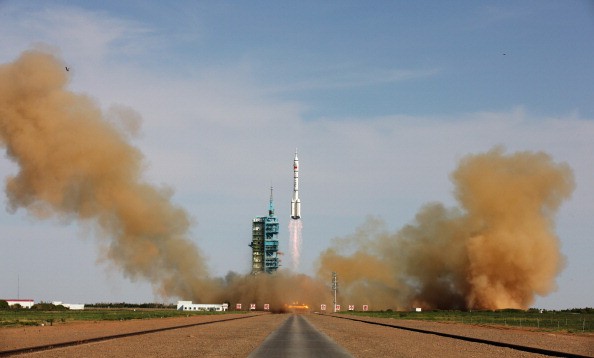China's latest generation of homegrown quick response rockets is scheduled to enter commercial use next year, a scientist with a state-owned aerospace firm disclosed on Sunday.
The first launch of the Kuaizhou-11, developed by the Fourth Academy of China Aerospace Science and Industry Corp. (CASIC), is planned for 2017, Zhang Di, head of the company's space projects department, said in an interview with the Global Times newspaper.
The Kuaizhou series of rockets were first developed in 2013 by China Sanjiang Space Group (CSSG), which is located in the city of Wuhan in central China's Hubei province, according to an earlier report from the state-owned Xinhua News Agency.
CASIC, which specializes in commercial rocket development and launch operations, was registered and established in February in to promote the commercial use of the Kuaizhou rockets. Kuaizhou-1 and Kuaizhou-2, which were developed in 2013 and 2014 respectively, have been signed to the newly established company with plans to develop more than 10 units of rockets designed to transport low-orbit small satellites in the future.
China aims to launch Jilin-1, the country's first domestically developed remote sensing satellite for commercial use, via a Kuaizhou-1 rocket by the end of 2016, according to local media reports.
The announcement comes on the heels of the recent approval of the Wuhan National Aerospace Industrial Base from the Development and Research Committee. The new base is expected to manufacture 50 rockets and 140 satellites by the end of 2020.
China's aerospace sector is facing stiff competition from India and other Asian countries, which are lately spending billions of dollars on their respective space exploration projects. In June, the Indian Space Research Organisation that it had successfully launched 20 satellites in a single rocket. It was the biggest single launch by India, trailing Russia's 33 satellites in 2014 and NASA's 29 the year before.



























